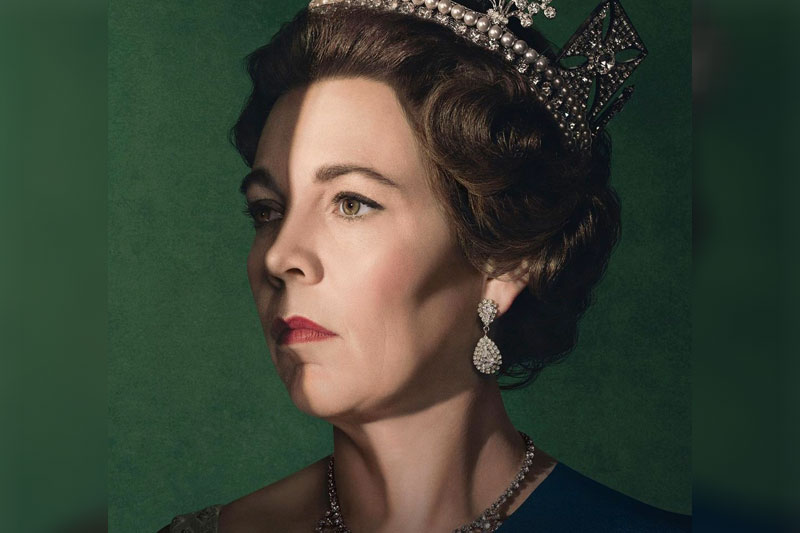Rising to the need of the times

While the coming of 2021 brings hope, much of 2020 was bleak. Lifestyles changed, businesses stalled, and the Grim Reaper knocked on many doors. Many have lost someone near and dear to them this year because of COVID-19 and the string of typhoons that showed no mercy, either.
With each passing, I couldn’t help but wonder what happens to the people — especially the children — they leave behind, or more importantly, if they’re even insured. I know of a couple who died within weeks of each other, leaving their only child an orphan.
For Malaysian-born Kelvin Ang, CEO of AIA Philam Life, understanding the importance of life insurance came at a major turning point in his and his family’s life when his father suddenly passed away from colon cancer. Because his father had no insurance policy to his name, his mother was forced to find a job and even borrowed money from relatives to make ends meet. At a young age, Kelvin became the head of the family overnight and had to help raise his younger siblings. When he was finally of age, he joined the Malaysian Air Force, which allowed him to buy an insurance policy for himself, with his mother as his beneficiary.
Now, Kelvin heads one of the biggest life insurance companies in the country and continues to champion protection, at the same time helping Filipinos live healthier, longer, and better lives.
I recently spoke to Kelvin who shared with me things people probably didn’t know about life insurance.
• Insurance comes with living benefits, too. While it’s true you should get life insurance to secure your family’s future when you pass away, that’s not the only reason why. Kelvin says a common misconception about insurance is it benefits only the policyholder’s family. But contrary to popular belief, insurance comes with two types of benefits: living and death. The living benefits mean you can enjoy the proceeds of your policy while you’re still alive (and kicking)!
There are several insurance policies that offer both insurance and investment opportunities or a retirement fund. In the future, these can even become a source of additional income.
• Consultations with your financial adviser are very important (and free of charge!). Kelvin is well aware many people are afraid of talking to their financial advisers. Some might think avoiding them will spare them from the “inconvenience” but it turns out, doing so does more harm than good. “Some people would forget about their insurance until something bad happens—say, a car accident. And that’s the only time they’ll scramble for their policy, only to find out their policy doesn’t cover accidents.” He underscores the importance of having consultations with financial advisers as policyholders tend to be neglectful of their own insurance coverage.
• The biggest strength of insurance is the ability to do leveraging. One fact, which isn’t widely known as the biggest strength of insurance, is the ability to do leveraging. Leveraging means the money you put into your insurance can grow 10 times.
Kelvin shares, “Most people don’t have safety nets and have to really work hard to afford the life they want to live. Some don’t have large savings because they haven’t worked long enough yet. But with leveraging, the insurance becomes the safety net.”
• Insurance is charity. According to Kelvin, what some policyholders don’t know is even if they’ve outlived their life insurance or haven’t experienced hospitalization by the end of their policy, their money was used to help the people who weren’t as fortunate to have the same fate as them. “This is the most beautiful aspect of insurance: charity. And charity doesn’t ask for anything in return.”
• Insurance helps the economy. Insurance operates on both assets and liabilities. The money collected by insurance companies is invested in government bonds, which are subsequently used in projects such as the construction of airport, dams, and highways.

The Two Queens
In the past month, I have been smitten with two drama series on Netflix whose central figures are strong women.
One of them is a living, breathing character, now 94 years old, Queen Elizabeth II of England, as portrayed by Olivia Colman in the series The Crown, now on its fourth season. The accidental queen (she would not have been so if her uncle King Edward VIII had not abdicated his throne), is the world’s oldest living monarch, longest-reigning current monarch, and oldest and longest-serving current head of state.
The other “Queen,” also named “Elizabeth,” is a fictional character, albeit inspired by many other characters, both male and female. She is Elizabeth Harmon (portrayed by Anya Taylor-Joy) of the mini-series, The Queen’s Gambit, whose life reflects the exciting moves in a chess game till she reaches the top.
The two Elizabeths owe much of the uniqueness of their achievements to their sex — they are both women surrounded by a chessboard of male characters who are expected to dominate them or be better than them. They wore their crowns even before Women’s Lib. After all, Queen Elizabeth grew up after World War II and the fictional Elizabeth, in the ‘50s and ‘60s. During their times, women were not expected to rule, whether literally or figuratively.

With certain flaws in her character as portrayed in The Crown and as gleaned from published news stories, Queen Elizabeth is all too human herself. But she has held her family and her country together through wars, divorces and deaths for over 60 years now. And never have I come across a news item that even suggests that she has broken down, or is dependent on any substance, drugs or alcohol (though she has a cocktail or two a day, I have read) to help her get through the day, the week, or even her annus horribilis in 1992. Well, Queen Liz likes to take the wheel of SUVs in the highlands, too.
In contrast, the other Elizabeth, who reaches the apex of her chess career at age 20, has to grapple with drugs and alcohol. As human as they come, the fictional chess prodigy in The Queen’s Gambit has a difficult life, and she picks up her bad habits from the most unlikely places and people.
And yet the two Elizabeths remain queen, because they make the right moves despite the wrong ones. They know their places on the chessboard of life, when to draw, when to adjourn, when to stay for the endgame. And if you cannot become King, then by all means, reign as Queen.
(You may e-mail me at joanneraeramirez@yahoo.com. Follow me on Instagram @joanneraeramirez.)
- Latest




























